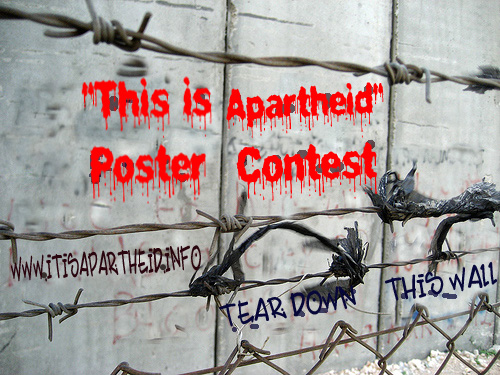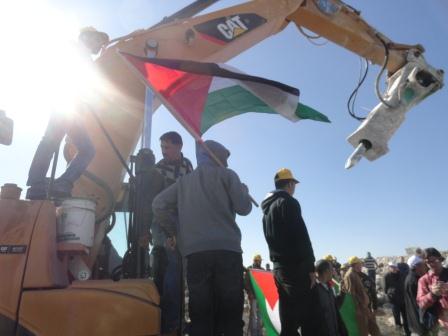Tag: Apartheid Wall
-
In Photos: The construction of segregation
by Jenna Bereld and Samar 16 December 2011 | International Solidarity Movement, West Bank Today, Israeli soldiers once again denied the Palestinians’ right to assemble and protest against the construction of the illegal separation wall. About fifty villagers of Qalandia gathered after the Friday prayer and went to the construction site in a peaceful demonstration.…
-
“This is Apartheid” poster contest
14 December 2011 | It is Apartheid HELP FIGHT INJUSTICE, HELP THE WORLD UNDERSTAND ISRAELI APARTHEID. WE ARE CALLING ON ACTIVISTS AND ARTISTS TO SUBMIT A POSTER TO THE “THIS IS APARHTEID POSTER CONTEST. Art has always been an important part of liberation struggles. It can inspire and convey concepts beyond words. www.itisapartheid.org and its…
-
Locals protest as Israeli barrier rips through Qalandia
7 December 2011 | International Solidarity Movement, West Bank Today, in the town of Qalandia, north of Ramallah, Palestinian and international solidarity activists tried to stop the illegal construction of the separation wall. The Israeli government issued a map that shows the new tracing of the wall. According to this map the wall would take more…



